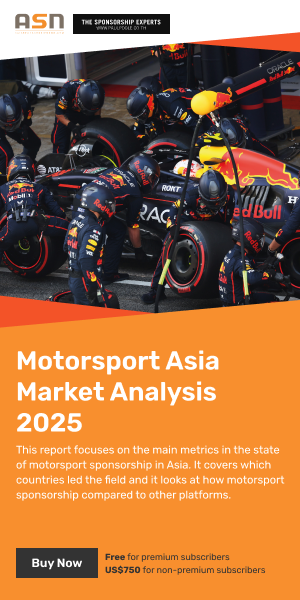Register
to get articles and more to your inbox
News & insights
Archive
Directory
Interview: Culture Group, Backstory on Groundbreaking Nike-LPL eSports Partnership

The Nike deal, reportedly worth about US$7.5m per year, is the largest in eSports so far in the Asian Sponsorship market.
ASN: Could you give us the backstory on the genesis of the Nike- LPL deal?
Michael Patent: We, Culture Group, have always had a belief that brands should shape culture, not rent media. We’d been working with Riot Games’ commercial team and through our work with them we realized the League of Legends Pro League (LPL) had all the hallmarks of traditional sport. We did some insight trips in Shenzhen and Guangzhou and saw a massive streetwear influence on the gaming community – we knew at the intersection of street style and esports there was an opportunity for a brand to make an impact. Riot Games were incredibly supportive and we found a perfect match in partnering with Nike China.
ASN: Brands are diving into the commercial pull of the LPL, is this sustainable in the long- term?
MP: The future is bright. Where other sports have failed, esports has thrived. Not only is the commercial pull sustainable, but any marketer looking at a younger demographic that does not have an esports strategy should be thinking of introducing a fully thought out approach and strategy. The impact of this partnership is that it will naturally open the door for other blue-chip non-endemic brands. ESports in China are not ‘cult’, they are ‘culture’ and this partnership proves that
ASN: How can brands truly leverage on their LPL activations?
MP: We are still in the early stages of brands leveraging esports in mass-market; any advertiser that brings the LPL to the forefront of consumer’s minds through their activation – whether through on- pack association or branded content – will receive recognition and engagement from the esports audience. There is a sense of community that gets validated by that type of brand involvement.
ASN: Can we expect innovation and where will it be coming from?
MP: As for innovation, brands that are able to create hybrid physical/virtual engagement (whether via AR or VR) will stand out for the same reason. Examples of recent success include K/DA, the virtual K-pop band created by League of Legends (LOL) and debuted during the global broadcast of the League of Legends World Championships. The band exists in the virtual realm and has been leveraged across a variety of League of Legends and non-league assets.
ASN: What was the major challenge of the deal?
MP: Anytime you’re creating something new, there are challenges. There were no comparable partnerships to use as a benchmark – everything was being done for the first time. Nike China and Riot Games are truly best in class brands – working among them was easy as they had terrific creators/thinkers dedicated to making the partnership a success.








